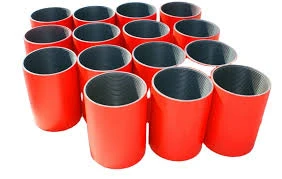- Afrikaans
- Albanian
- Amharic
- Arabic
- Armenian
- Azerbaijani
- Basque
- Belarusian
- Bengali
- Bosnian
- Bulgarian
- Catalan
- Cebuano
- Corsican
- Croatian
- Czech
- Danish
- Dutch
- English
- Esperanto
- Estonian
- Finnish
- French
- Frisian
- Galician
- Georgian
- German
- Greek
- Gujarati
- Haitian Creole
- hausa
- hawaiian
- Hebrew
- Hindi
- Miao
- Hungarian
- Icelandic
- igbo
- Indonesian
- irish
- Italian
- Japanese
- Javanese
- Kannada
- kazakh
- Khmer
- Rwandese
- Korean
- Kurdish
- Kyrgyz
- Lao
- Latin
- Latvian
- Lithuanian
- Luxembourgish
- Macedonian
- Malgashi
- Malay
- Malayalam
- Maltese
- Maori
- Marathi
- Mongolian
- Myanmar
- Nepali
- Norwegian
- Norwegian
- Occitan
- Pashto
- Persian
- Polish
- Portuguese
- Punjabi
- Romanian
- Russian
- Samoan
- Scottish Gaelic
- Serbian
- Sesotho
- Shona
- Sindhi
- Sinhala
- Slovak
- Slovenian
- Somali
- Spanish
- Sundanese
- Swahili
- Swedish
- Tagalog
- Tajik
- Tamil
- Tatar
- Telugu
- Thai
- Turkish
- Turkmen
- Ukrainian
- Urdu
- Uighur
- Uzbek
- Vietnamese
- Welsh
- Bantu
- Yiddish
- Yoruba
- Zulu
j55 coupling
Understanding J55 Coupling A Comprehensive Overview
J55 coupling is a crucial component in the oil and gas industry, specifically designed for use in various drilling and well completion applications. The term J55 refers to a specific grade of steel that is often employed in the manufacturing of casing and tubing for oil wells. This grade offers a unique combination of strength, ductility, and corrosion resistance, making it suitable for the demanding environments encountered in drilling operations.
The Significance of J55 Steel Grade
J55 is part of the American Petroleum Institute (API) classification system, which categorizes steel grades based on their chemical composition and mechanical properties. Typically, J55 steel has a yield strength of around 55,000 psi, which is sufficient for many oil and gas applications. Its mechanical properties allow it to withstand substantial loads, making it ideal for use in high-pressure, high-temperature environments.
The versatility of J55 grade steel extends beyond its strength. It also offers excellent weldability and formability, allowing for the creation of various connections and configurations essential in drilling operations. Couplings manufactured from J55 steel can be found in multiple forms, including threaded connections, which ensure a tight fit and mitigates the risk of leaks or failures during operation.
Couplings The Backbone of Oil and Gas Operations
Couplings are integral components in the construction of tubing strings, linking sections of pipe together to create a continuous shaft for transporting oil, gas, and other fluids from the reservoir to the surface. The reliability of these couplings is paramount, as any failure in the connection can result in significant operational delays and financial losses.
j55 coupling

J55 couplings are designed to meet the demanding specifications of the industry, ensuring that they can endure the challenges presented by different geological formations and pressures experienced during drilling. They are engineered to provide a secure connection that remains intact under varying thermal conditions and mechanical stress.
Applications and Advantages
The applications of J55 couplings extend beyond drilling operations to include well casing, cementing, and production. In well casing, J55 couplings ensure the structural integrity of the wellbore, protecting it against collapsing and external pressures. During cementing operations, these couplings help create a strong bond between the casing and the cement, which is critical for isolating different layers of the subsurface.
One of the most significant advantages of using J55 coupling is its cost-effectiveness. The availability of J55 steel and the efficiency of manufacturing processes contribute to relatively lower costs compared to higher-grade materials. This means that operators can ensure the safety and efficiency of their operations without overextending their budgets.
Conclusion
In conclusion, J55 couplings play a vital role in the oil and gas industry, providing strong, reliable connections necessary for successful drilling and production operations. Their unique combination of strength, ductility, and affordability makes J55 steel a popular choice among industry professionals. Understanding the critical nature of this component can help stakeholders make informed decisions about their drilling and completion strategies, ultimately leading to enhanced operational efficiency and reduced costs. As the industry continues to evolve, the demand for reliable materials like J55 will remain essential in meeting the challenges and opportunities ahead.
-
Tubing Pup Joints: Essential Components for Oil and Gas OperationsNewsJul.10,2025
-
Pup Joints: Essential Components for Reliable Drilling OperationsNewsJul.10,2025
-
Pipe Couplings: Connecting Your World EfficientlyNewsJul.10,2025
-
Mastering Oilfield Operations with Quality Tubing and CasingNewsJul.10,2025
-
High-Quality Casing Couplings for Every NeedNewsJul.10,2025
-
Boost Your Drilling Efficiency with Premium Crossover Tools & Seating NipplesNewsJul.10,2025







